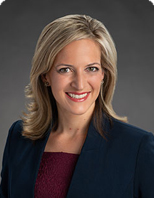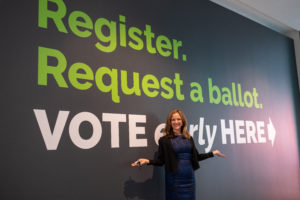Read Full Story on Michigan Impact: This is Michigan
It’s the first presidential election since Michigan voters approved a 2018 proposal to vote by absentee ballot without stating a reason. Add in the coronavirus pandemic, and there’s been a huge increase in ballot requests, inundating clerk’s offices as they work long hours to keep up. A lot of their time is spent answering phone calls from voters wanting to know if their ballot has been sent or received by the clerk.
Part of the Citizen Design Interaction program, students worked with the Secretary of State’s office. As the team interviewed some of the 1,500 township and city clerks across Michigan, they kept hearing the resource challenges offices faced with extraordinarily high demand for mail-in ballots.
Using a process pioneered by Nick Sexton and Steve Gerhart from the city of Ann Arbor, the team worked with municipal IT departments to create and pilot an automated email notification system. As clerks update information in the statewide Qualified Voter File about ballot status, emails are automatically sent to voters in those cities and townships.




